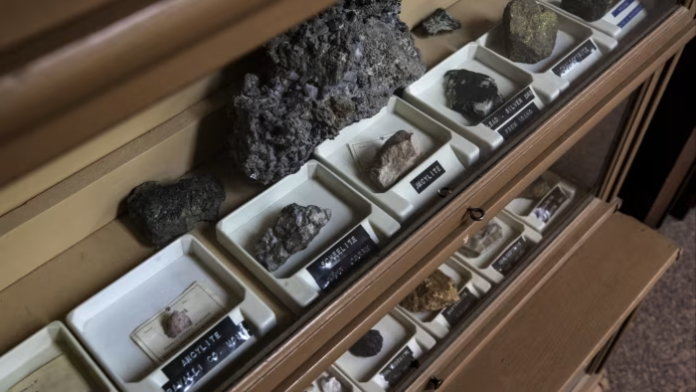China banned exports of technology to extract and separate critical rare earth metals on Thursday, the country’s latest move to secure its dominance over several strategic materials.
Rare earth elements are a group of 17 metals used to produce magnets capable of converting energy into motion for use in electric cars, wind turbines and electronics. Nathan Picarsic, co-founder of the geopolitical consulting firm Horizon Advisory, stated:
This should be a clarion call that dependence on China in any part of the value chain is not sustainable.
The ban is expected to have the biggest impact on so-called “heavy rare earths,” used in electric motors, medical devices and weapons, where China has a de facto monopoly on refining.
Last December, China’s Ministry of Commerce sought public opinion on a potential move to include the technology in its “Catalogue of Technologies Prohibited and Restricted from Export.” The stated aims of the catalogue include protecting national security and public interest.
China has significantly tightened export rules for some metals this year amid growing tensions with the West over control of critical minerals.
In August, it imposed export permits on chip-making materials, gallium and germanium, and similar requirements for several types of graphite followed on December 1. Don Swartz, CEO of American Rare Earths, which is developing a rare earths mining and processing facility in Wyoming, confirmed China’s intention to seize the field.
China is driven to maintain its market dominance. This is now a race.
The decision to protect its rare earth technology comes against a backdrop of Europe and the United States trying to phase out rare earths from China, which accounts for nearly 90 per cent of global refining production.
China has mastered a solvent extraction process for enriching strategic minerals that MP Materials and other Western rare earth companies have struggled to adopt because of technical challenges and pollution concerns.
Shares of MP, which has gradually begun boosting rare earth processing in California, spiked more than 10 per cent on Thursday after China’s action.
Ucore Rare Metals, led by Pat Ryan, claimed on Thursday it had completed commissioning a facility to test its proprietary rare earth processing technology, partly funded by the US Department of Defence.
“New technologies will be needed to outmaneuver the Chinese grip on these important areas.”
However, Beijing has been hindering exports for years, Constantine Karayannopoulos, former CEO of Neo Performance Materials, which separates rare-earth metals in Estonia, stated.
This announcement just formalises what everyone knew to be the case.
According to consulting firm Benchmark Mineral Intelligence (BMI), China separates 99.9 per cent of the world’s heavy rare earth metals. Most of the Western processing capacity being installed is for “light” rare earth elements, including neodymium and praseodymium (NdPr).
“Most likely, the impact of this ban will be in greater difficulty in getting heavy rare earth separation capacity online outside of China. You can have all the NdPr separated in Europe or the U.S. as you want, but if you’re still relying on dysprosium from China, you’re still very exposed to geopolitical shocks.”
